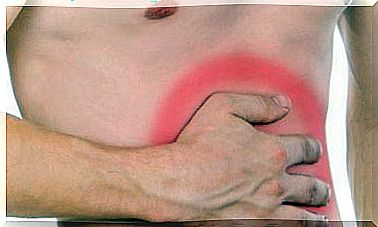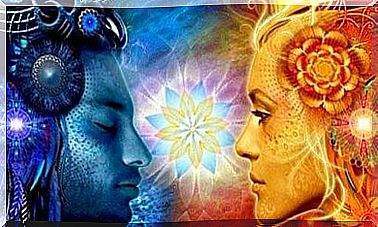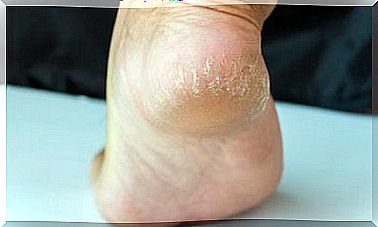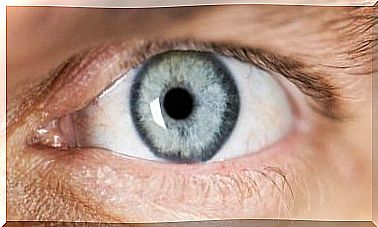Nocturnal Polyuria And Its Treatment

Nocturnal polyuria is a condition that interrupts nighttime sleep because of the urge to urinate. It makes you go to the bathroom more often at night than during the day, which can have a big impact.
The urge to urinate normally increases with age and this affects both men and women. It can have several causes according to the scientific literature on the subject (Spanish link).
If someone gets up more than twice during the night, this can become a problem. Nocturnal polyuria is also known as nocturia. It can begin to negatively affect day-to-day activities, affecting the quality of life of those who suffer from it.
Causes of Nocturnal Polyuria
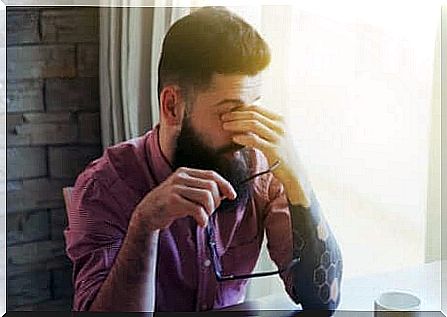
There are a few different things that can cause this problem. First, drinking lots of fluids in the late afternoon, or drinking coffee or alcohol after dinner, can lead to nocturia.
In addition, urinary tract infections can also increase the frequency of urinating at night. Also, having high levels of calcium in the blood or taking medications such as diuretics can cause it.
In addition, there are other conditions and causes that can result in nocturnal polyuria as indicated in the MSD manual (Spanish link). A few examples of this include:
- poorly controlled diabetes.
- gestational diabetes or diabetes insipidus.
- heart failure.
- edema in the lower extremities.
- sleep problems or disorders, such as sleep apnea.
- taking certain medications.
Diagnosis of Nocturnal Polyuria
If you think you may have nocturnal polyuria, it’s a good idea to keep a record of when you empty your bladder. This will also help the doctor to make a correct diagnosis. During two days you have to keep track of a number of things and write them down:
- the amount of liquid you drink.
- the number of times you go to the bathroom.
- the amount of urine you produce.
- the medicines you are taking.
- any urinary tract infections.
- any related symptoms.
Then the doctor will look at this data to find out the causes and the best treatment for each individual patient. In addition, your doctor may order a urine test to check for a condition that causes nocturnal polyuria.
Symptoms

The main symptom of this condition is insomnia. Normally, you should be able to sleep 6 to 8 hours straight without going to the bathroom. Patients with nocturnal polyuria have their sleep interrupted more than once to urinate. This can disrupt their normal sleep cycle and lead to fatigue.
Another symptom that can be caused by this condition is daytime polyuria. With nocturnal polyuria, your body produces more than 2 liters of urine while you sleep. Daytime polyuria is the same problem, but during the day.
It is also possible that you produce more urine at night than your bladder can store, which means that the body has to empty some urine at night.
Can nocturnal polyuria be prevented?
The World Health Organization (WHO) recommends a series of preventive measures to try to minimize the effects of this problem. Some opinions are closely related to the causes of this disease:
- Try not to drink much in the afternoon. Also avoid drinking alcohol and using stimulants.
- Go to the toilet regularly, especially during the day and before going to bed.
- Eat lots of vegetables, fruits, legumes and soy. In contrast, reduce the consumption of red meat, saturated fat, salt, sugar and calcium.
- Lie down after dinner.
- Avoid long trips, constipation and humidity.
- Get plenty of exercise.
- Prevent obesity and diabetes.
Therapy

If you think you have nocturia you should see a doctor. If necessary, he can refer you to a urologist. Treatment depends on the causes.
The treatment options for this disease may include various pharmacological interventions or treatments. For medicines, some measures you should take into account:
- If you are currently being treated with diuretics, take them 6 hours before going to bed.
- Take a nap in the middle of the afternoon.
- Raise your legs as you sit quietly.
- Wear compression stockings, these can help prevent fluid build-up.
On the other hand, pharmacological treatment will consist of taking anticholinergics (Spanish link). These drugs can reduce the symptoms of an overactive bladder.
Also, certain diuretics can help regulate urine production. Finally, other medications such as desmopressin can cause the kidneys to produce less urine.

